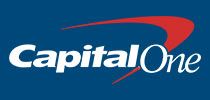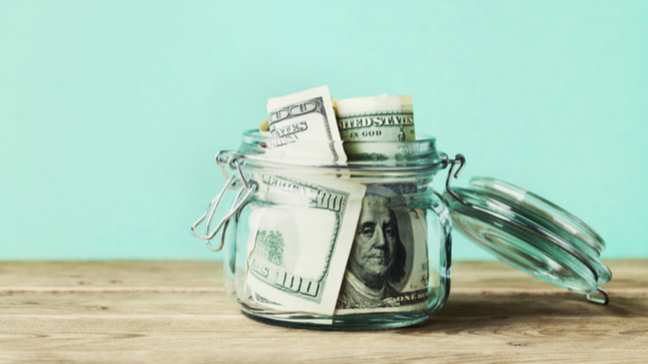It’s time to give yourself a 10-second financial check-up: are all of your hard-earned dollars earning interest? Even your short-term savings that you’ll need in two years or so?
Savvy investors know that every dollar deposited at a bank, brokerage, or financial institution should be making money — and that includes your short-term savings, cash investment balances, even your checking account. If not, you should be looking for somewhere else to store your dollars.
Let’s look at where best to stash your short-term savings.
What’s Ahead:
High-yield savings accounts
High-yield savings accounts pay up to 5x the national average savings rate and are convenient to open and manage. You can transfer money in and out electronically from your checking account or other bank accounts — a process that rarely takes more than two business days.
Most high-yield savings accounts have no fees or minimum balance requirements, so there’s no excuse for not using one for short-term cash reserves.
You can check out our full list of the best high-yield savings accounts, but here are three of our favorites that you may want to consider for short-term savings:
Aspiration Bank

Aspiration Bank is a great bank if you love earning rewards. And, because this bank plants trees for you with your rounded-up change, you can pride yourself on taking care of the environment through your banking.
You only need a minimum balance of $10 in the account and can earn up to 5.00% APR, depending on the account you have — they have a free account and a subscription account (Aspiration Plus) that gives you access to more of their products as well as a higher APY.
Given these easy terms and high returns, the Aspiration Plus Savings Account can be a very lucrative place to stash your short-term savings.
Learn more/apply or read our full Aspiration Bank review.
Citi Accelerate® Savings

The Citi Accelerate® Savings has one of the highest APYs when it comes to high-interest savings accounts, coming in at 2.20% APY. And their monthly fee is waived if you have at least $500 in your account, so it’s a great option if you have a larger short-term savings goal in mind.
And since there’s no minimum opening deposit, they’re great for just about anyone who wants to start socking away money every month.
Unfortunately, the Citi Accelerate® Savings is only available in certain U.S. markets. If you live in California, Connecticut, Maryland, Nevada, New Jersey, New York, Virginia, Washington, DC, or select markets in Florida or Illinois, you’ll need to go with an alternate account option.
Capital One 360 Performance Savings

If you’re looking for a more full-service experience with your high-interest online savings account, consider Capital One 360 Performance Savings. They have plenty of services to help you out with your savings, and an APY of 3.00%. Plus, there are no minimums or monthly fees.
It’s a great option if you’re starting out with a low balance and you want to increase it until your short-term savings project is completed.
Read our full Capital One 360 Savings review.
Cash management accounts
A cash management account is an account that’s held by a robo-investor. It’s not a checking, savings, or investment account. Instead, the brokerage firm holds your money for you to use. They issue debit cards just like a checking account, but they have higher interest rates than those types of accounts.
These are a great option if you’re already using a robo-advisor for your long-term investments. You can find them at companies like Wealthfront, which has a cash account.
Short-term bonds
Short-term bonds are issued either by corporations or by the government. Each bond has different terms, so you’ll want to research what you’re signing up for before you make a purchase. But they’re overall low-risk investments.
But what is a bond? Good question. Bonds are basically IOUs that a company or government gives you on a debt. These groups are trying to fund something, but need capital, so they sell off bonds and tell you that after X amount of years, they’ll pay you Y in interest.
Read more: How does a bond work? A simple (and informative) guide
T-bills
Treasury bills, or T-bills, are another great short-term savings storage plan. They work similarly to bonds — you buy them from the treasury, and then you wait until they mature. Once they mature, you sell them and receive your money back, plus any interest.
You can buy them in intervals of 1, 4, 8, 13, 26, and 52 weeks, so they’re great for short-term projects that take about a year for you to save for.
Money market accounts
Money market accounts, also known as MMAs, are similar to both checking accounts and savings accounts.
How does that work? Well, you have interest rates that are higher than checking accounts and more on par with savings accounts, but you’re able to get a debit card to access your funds like a checking account. However, there is a limit to how many transactions you can make a month.
Money market accounts are good for short-term savings because they have higher accessibility than a savings account, but are low-risk. As long as you keep money in the account — and stay below the monthly withdrawals limit — you’ll earn interest on the account.
Read more: Best money market accounts
Certificates of deposit
Savers who are looking for the best return on their money on a slightly longer-term basis (minimum three months) should take a look at a certificate of deposit. CDs have terms that typically run from a period of three months to five years. Rates increase as the CD term gets longer.
You can get the best rate on a CD by shopping online, as these tend to change quite often. Most CDs will have minimum deposits of $500 or more, and patient investors can get a higher rate the longer their term.
To reap the benefits of long-term CD rates with short-term savings, check out this article on CD laddering, which explains how to build your own.
Should you invest your short-term savings?
When you save money in an FDIC-insured bank account, your money is guaranteed not to lose value. When you invest money, you’re taking on risk for the chance at a greater return. You might very well earn a much better return on your money than you could with a bank, but you could also end up with less money than you put in.
In general, you want to save money you’ll need in the short term and invest money you won’t need for a long, long time. That’s because the risk of losing money on an investment diminishes the longer you’re able to hold that investment. We all know the stock market is volatile. If you put your money in the day before a crash, you could lose a big chunk of value overnight. If you leave that money invested for 30 years, however, you’ll likely come out way ahead (despite the initial crash!)
Risk tolerance is a personal thing, but my philosophy is that I never invest money I’ll need in the next two years. If don’t need the money in the next two years but will need it in the next five years (for example, money I’m saving for a future car purchase), I might invest the money, but very conservatively.
Read more: 6 low-risk investments for first-time investors (or anyone risk-averse)
If you’re looking for a simple way to save money for a short-term goal, but you’d rather take your chances investing it rather than parking it at a bank, check out the Acorns app. You just download the app, link a bank account, answer a few questions, and you’re an investor. You can connect the app to any number of debit or credit cards, and Acorns automatically rounds up each of your purchases and invests that amount on your behalf. While this won’t make you rich, it can help any first-time investor make a little extra cash.
The bottom line
For most people, the best place to put short-term savings is an online savings account that pays a fair interest rate.
But other options, like certificates of deposits, money market accounts, short-term bonds, T-bills, and cash management accounts are all good alternatives you may not have considered for saving up for a short-term goal.
Featured image: Julia Sudnitskaya/Shutterstock.com

